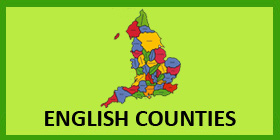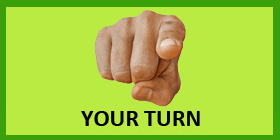




Back to the Into The 21st Century calendar



One of the biggest changes that has happened in the past 50 years is the decline of the popularity of newspapers and the birth of internet-based news and, as a follow-on, fake news. In 1970, as an example, the Daily Mirror and the Daily Express were Britain's two biggest papers. They sold between them more than 8 million copies a day. Today, their combined sales are less than one million and continuing to fall.
If you pop to your local newsagent and check the Daily Express headlines they are frequently about the weather, a cure for arthritis or Alzheimer's disease or migrants to the UK. These are the subjects which they think, and are possibly correct, will appeal to their loyal, but getting older by the year, readers. I know some old guy is coding and writing this website but he is not your average oldie. It is mainly the elderly who get their news from a paper and don't use computers.
Fake news has really taken off with social media and the internet. It is pretty expensive to produce your own newspaper, print it and sell it but writing a post on Twitter or Facebook is far easier and you can actually say anything you want and pretend it's real. In the really old days, people would print pamphlets and hand them out or hang them up in the coffee bars that were all the rage in Georgian times. However you still only reached a very small audience but if you did it in London it was probably a significant audience.
On the internet your audience is almost infinite and global. The first question is why would people want to post fake news? I think we all know there are people out there who would like to think they are more important than they are. A good bit of fake news in their blog could make them, briefly, famous. Depending on how fake the news is it could also cause them a lot of problems.
The laws of libel, which means to publish a false statement that is damaging to a person's reputation, apply to the internet just as much as to newspapers and magazines. Just for your info, the crime of slander is to actually make a false spoken statement damaging to a person's reputation. Slander is more difficult to prosecute because you either need to record the statement or have witnesses to it or it is your word against someone else. Libel though should be easy to take action against except........it usually costs an awful lot of money to do so, which means people tend to get away with it. Other people may give out fake news to take people's attention away from something else.
The second question is how can you spot fake news? How can you avoid being taken in? Before we answer that let me just add that some fake stories, offers etc. are designed solely to make you click on them and the person who put it there will then have some or all of your details and possibly your money. Spotting fake news isn't easy because there is so much around. If you decide to get your news from a reliable source, say the BBC, you can be almost certain it isn't fake. If you see a news story elsewhere, try to check and see if the BBC has covered it somewhere or even google the story and see who else is reporting it. One problem here takes us back to the beginning of this piece. Newspapers are all desperate to attract readers, or more accurately buyers because they don't care if you read it as long as you have spent money on it. They may, sometimes, exaggerate a story to make it more sensational so people see the headline and buy the paper. The story may not be completely fake but it may not be completely true.
The journalists are quite clever here and will say things like “a friend close to (for example) Theresa May said she is not worried about the NHS”. Sadly, this could be the journalist merely getting across a point he or she wants to make and they have never spoken to a friend of Mrs May. It would be difficult, though, to prove they hadn't. It would also take a long time and keep the story in the news.
There is another problem too. Some people, no names but you may have an idea, picture clues are available, might claim news was fake news because they don't want you to believe it when in fact it is true. Just saying. Of course some news about them may well be fake too. It is a massive problem for all of us and especially young people like yourselves. My advice is to be careful, check things out but please don't get drawn into the web (hahaha) of trying to be famous. Feel free to express your opinion if you want, but make sure people know it is your opinion, to which you are always, entitled, and not necessarily fact. And be prepared to face the consequences if your opinion causes hurt or pain to another human being. If you think it might, keep it to yourself. There is no place for bullying and hurting in our world. We should all be able to live together and have different views. I speak from personal experience as I have had things written about me on social media that were completely untrue.
In order to survive on our planet we need to have an environment which supports us. To do this, we need to look after that environment. Many things that man has done on earth have resulted in parts of the planet being threatened or, even worse, being destroyed.
Let's just take one example; trees. Man has always needed trees and he has also always cut them down. The wood is used for building and making fires, farmers remove trees to have more land to grow crops or graze animals, the pulp is used for making paper or the space is needed to build a road, an airport, a city, a village. But trees are a part of the way nature functions. Animals and plants need trees to survive. Trees refresh the soil. It's all part of the circle of life.
Another problem is climate change. We know, because it has happened many times long before man made any difference, that our climate changes naturally. Our history section started at the end of the last ice age. I can assure you that man had no effect on the ice age coming or the ice age going. It was simply nature. But man is contributing to those changes big time. How we produce our energy is one way. Burning coal or similar fuels sends harmful gases into the atmosphere. We didn't know this years ago, we do now. The fuel used in diesel and petrol cars harms our environment. No one knew that when the car was invented, we do now.
On 12 December 2015, 195 countries signed an agreement to try to stop some of the things we do to harm our environment. Based on certain things since then, like President Trump saying he will pull out of the agreement, known as the Paris Agreement because that was where it was signed, I have my doubts on how much effect it will all have but we must hope.
However, we can do more than hope, we can act. Rubbish, litter, is harming many parts of our planet. Not only does it look ugly, it harms animals and the environment. Watch this and think before you drop your next piece of litter.
Try our quiz. Guess how long it takes some things to degrade or rot away. Click an item and be surprised.





 Back to 2017AD
Back to 2017AD
Forward to 2019AD

